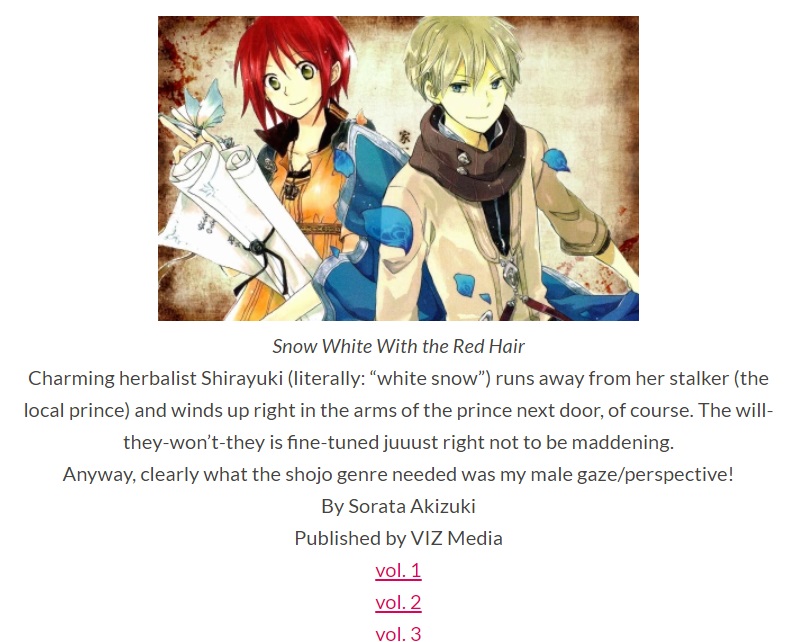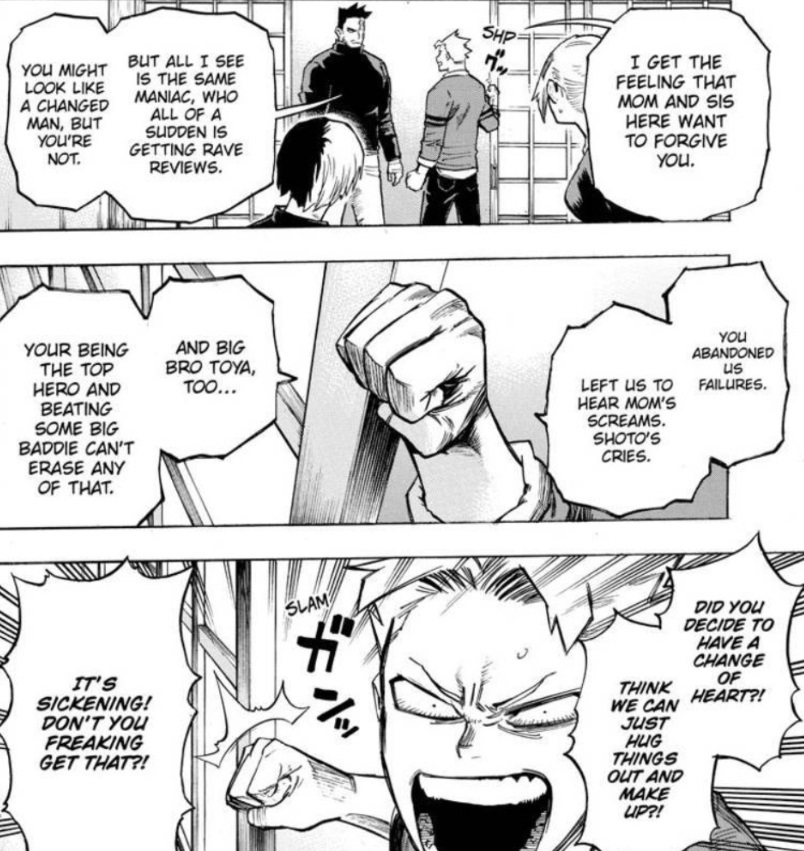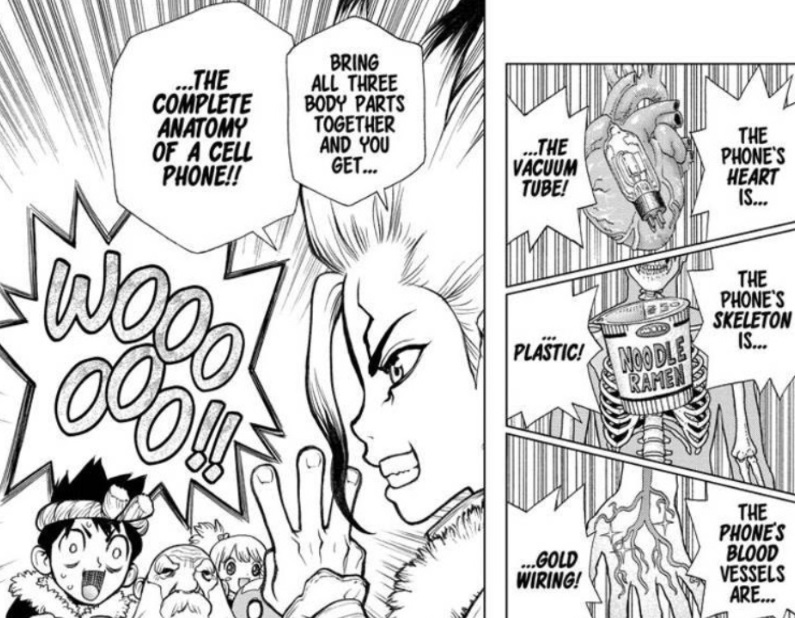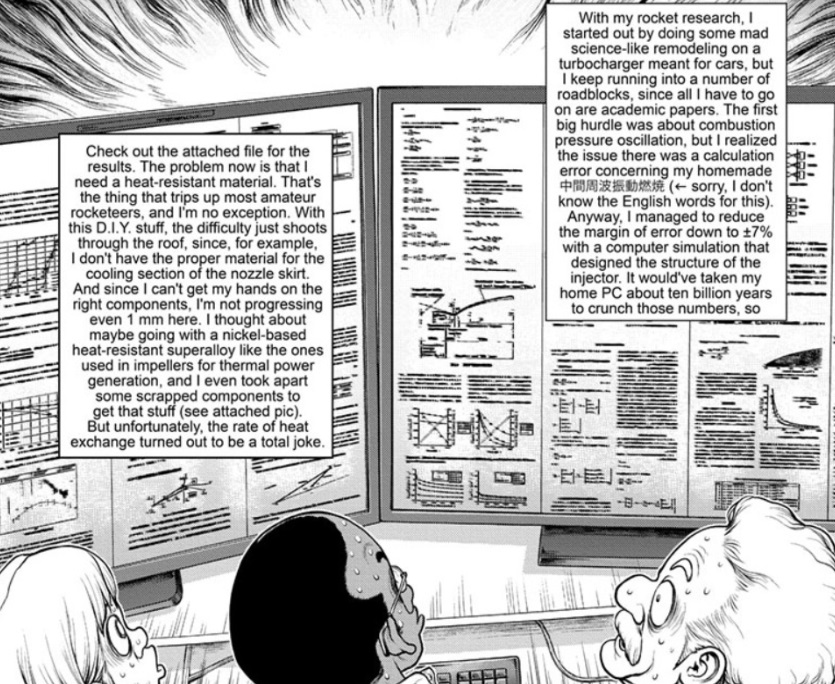I think emotional maturity and basic empathy are what matter when interacting with a text.
Would a living blob of toxic masculinity translate shojo well? Probably not.
Can a man who processes emotions and has female friends do it? If he& #39;s conscious of his biased perspective, sure https://twitter.com/mangaberg/status/1313917407325573120">https://twitter.com/mangaberg...
Would a living blob of toxic masculinity translate shojo well? Probably not.
Can a man who processes emotions and has female friends do it? If he& #39;s conscious of his biased perspective, sure https://twitter.com/mangaberg/status/1313917407325573120">https://twitter.com/mangaberg...
Snow White With the Red Hair is still tricky for me, but is that b/c Akiduki is female or b/c the writing is more nuanced than punchy-punchy shonen, aka my bread and butter?
I& #39;d argue the latter. Feels more about genre/demo than the author& #39;s identity (linked, but not inexorably).
I& #39;d argue the latter. Feels more about genre/demo than the author& #39;s identity (linked, but not inexorably).
In SWWtRH, much less is spelled out. I have to read between the lines and think a lot more about how a character& #39;s feelings in a given moment would change the tone. Or how the previous scene might affect their current state of mind. This can be hard! I have to put in the time.
Interestingly, MHA presents similar challenges! Horikoshi& #39;s writing style is unconventional among mainstream shonen mangaka. Lots of nuance. Half-sentences. Things left unsaid.
Meanwhile, Dr. Stone is written like an instruction manual. Hearts worn on sleeves. Super clear-cut.
Meanwhile, Dr. Stone is written like an instruction manual. Hearts worn on sleeves. Super clear-cut.
On the flip side, can women translate boom-kapow shonen? Uh, sure. It& #39;s not rocket science (except when it is).
And how does any of this apply to NB people?
As long as the translator is empathetic enough (re: author/characters/text) the gender binary doesn& #39;t feel too relevant.
And how does any of this apply to NB people?
As long as the translator is empathetic enough (re: author/characters/text) the gender binary doesn& #39;t feel too relevant.
Should it matter if the translator isn& #39;t the same ethnicity, or didn& #39;t grow up in the same country/culture while facing the same societal prejudices as the author?
Intersectionality is real and it matters, but the translator already serves as a bridge. Empathy is the job.
Intersectionality is real and it matters, but the translator already serves as a bridge. Empathy is the job.
As for "voice" and "language," that also comes down to...life experience? Broad consumption of media?
Like, "Do you know how people talk?"
It& #39;s an organic yet technical challenge, and a man who can& #39;t produce believable dialogue for women shouldn& #39;t be writing/translating fiction.
Like, "Do you know how people talk?"
It& #39;s an organic yet technical challenge, and a man who can& #39;t produce believable dialogue for women shouldn& #39;t be writing/translating fiction.
(also, the shonen <--> shojo binary is obviously limited/contrived. Genre/demo isn& #39;t a straight line spectrum, but those two are easy mainstream nodes to reference.
Niche manga about gender issues specifically would prob benefit from a TL who identifies closely w/the author)
Niche manga about gender issues specifically would prob benefit from a TL who identifies closely w/the author)
(also also, I& #39;m still a relative novice w/only 7 years experience. take anything I say with a grain of salt, think critically, and listen to not-just-men)

 Read on Twitter
Read on Twitter





